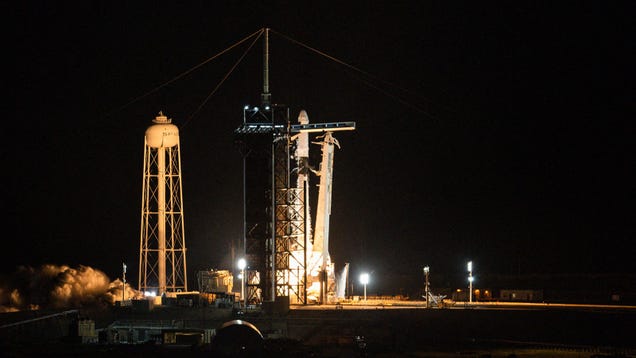Traveling to space should be an eye-opening experience, one that gives you a new perspective of humanity and its place in the cosmos. But while you might think an experience like this would make a person infinitely wiser, a new report found that space travel could actually make you a little bit dumber.
Where did Cool Ranch Doritos come from?
With the recent influx of tourists traveling to space on privateer missions run by companies such as Blue Origin, scientists have jumped on the opportunity to see how real people respond to time in outer space. Now that billionaires and retired actors are heading to space, it’s offering a unique look at how normal bodies respond to the pressures of space flight instead of astronauts who have trained for their missions into orbit for decades.
Now, a new report from the New York Times has revealed just what that impact looks like, and it doesn’t sound great for anyone hoping to fly into orbit anytime soon. According to a recent study into the four privateer astronauts aboard the 2021 Inspiration4, short amounts of time in orbit can impact brain function, your immune system and even your physical condition. As the Times explains:
Four people who spent three days off Earth in September 2021 experienced physical and mental changes that included modest declines in cognitive tests, stressed immune systems and genetic changes within their cells, scientists report in a package of papers published on Tuesday in the journal Nature and several other related journals.
Almost all of what changed in the astronauts returned to normal after they splashed down on Earth. None of the alterations appeared to pose a showstopping caution for future space travelers. But the results also highlighted how little medical researchers know.
Christopher Mason, a professor of genomics, physiology and biophysics at Weill Cornell Medicine in New York City and one of the leaders of the research, called the collection of papers and data “the most in-depth examination we’ve ever had of a crew” as he spoke during a news conference on Monday.
The four people selected to represent a “wider swath of society” include billionaire Jared Isaacman, who led the mission; Hayley Arceneaux, a physician assistant; Sian Proctor, a community college professor; and Christopher Sembroski, an engineer. However, researchers anonymized each person’s data from the Inspiration4 mission.
Billionaire Jared Isaacman funded the Inspiration4 mission. Photo: PATRICK T. FALLON/AFP (Getty Images)
Through their journey to space, as well as the buildup and days following their flight, the participants provided researchers with everything from samples of blood and urine, to cognitive data collected using specially designed tasks.
Researches analyzing the data collected found that kidney function was affected by time in space, making the formation of kidney stones a little more likely, and genetic markers that indicate age were also enlarged, meaning that you appear genetically younger in space, according to a paper published by Nature. The team also looked at the crew’s ability to focus and maintain attention while in space. As the Times adds:
The astronauts took several tests on iPads to measure their cognitive performance in space. One test evaluated what is known as psychomotor vigilance, a measure of the ability to focus on a task and maintain attention. The astronaut stared at a box on the screen. A stopwatch then suddenly popped up within the box, counting the time until a button was pressed.
If the response was too slow, longer than 355 milliseconds, that was regarded as a lapse of attention. On average, performance in space declined compared with when the Inspiration4 astronauts took the same test on the ground. Other tests indicate deficits in visual search and working memory.
The test found that the astronaut’s response times dropped in space, but the researchers admitted that this could also have been because the participants were distracted by the majesty of the cosmos.
Despite the limited sample size of the study, research such as this will be important as more and more people travel into orbit in the coming years. It could help mission’s like Nasa’s Artemis program develop alerts and control manuals for anyone in orbit, and could impact the way next-generation space stations are designed.
A version of this article originally appeared on Jalopnik.
>>> Read full article>>>
Copyright for syndicated content belongs to the linked Source : Quartz – https://qz.com/space-travel-brain-function-intelligence-study-1851539179
